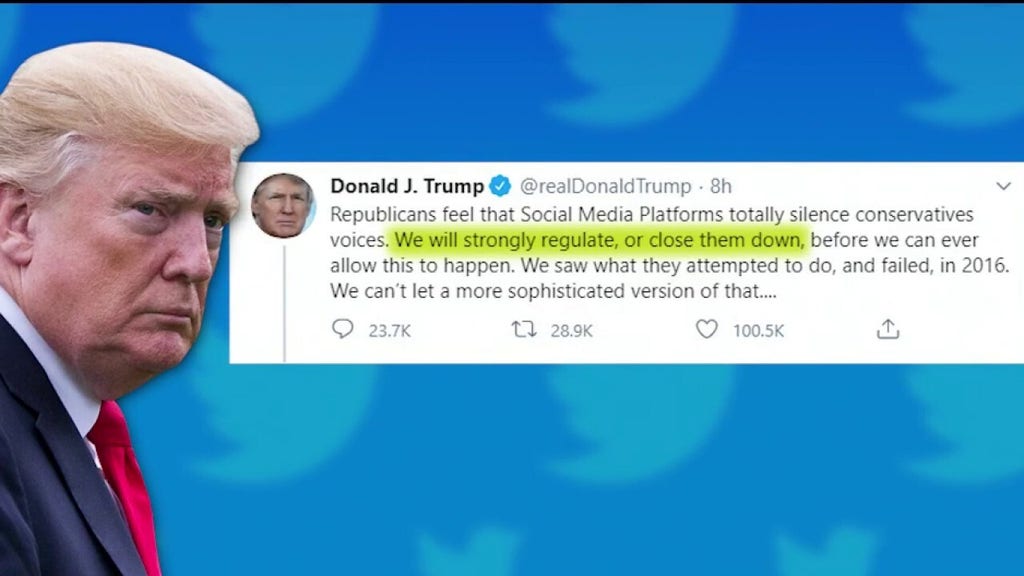Flanked by Attorney General Bill Barr, President Trump signed an executive order in the Oval Office on Thursday that calls for new regulations under Section 230 of the Communications Decency Act of 1996 (CDA) to remove statutory liability protections and cut federal funding for tech companies that engage in censorship and political conduct.
The president's order came just two days after Twitter took the unprecedented step of slapping a "misleading" warning label on two of Trump's tweets concerning the fraud risks of nationwide mail-in balloting. The move immediately backfired: Experts disputed that Trump's tweet was actually misleading, in part because mail-in balloting has been linked to ongoing fraud; Twitter's fact-check itself contained false statements; and Twitter failed to apply the standard of review to other users.
At Thursday's signing ceremony, Trump called the fact-check "egregious," and held up a photo of Twitter executive Yoel Roth, who heads up the site's fact-checking and rules-making operation. Fox News reported on Wednesday that Roth has mocked Trump supporters, called Trump's team "ACTUAL NAZIS," slammed "scary trannies" in New York City, and called GOP Senate Majority Leader Mitch McConnell a "bag of farts." (In a statement, Twitter did not dispute Fox News' reporting, but called it "unfortunate.")
"My executive order calls for new regulations under Section 230 of the Communications Decency Act to make it so that social media companies that engage in censoring any political conduct will not be able to keep their liability shield," the president said.
Continue reading
What is Section 230?
The Communications Decency Act was established as Title V of the Telecommunications Act of 1996, right as the internet was growing and expanding amid the first big tech boom of the 1990s. It was initially created to regulate pornographic material on the internet.
Sen. Ron Wyden (D-OR) and Rep. Christopher Cox (R-CA) created Section 230 within the Communications Decency Act to protect speech on the internet.
Long before social networking, Section 230 was meant to cover sites like news outlets with comment sections, online forums, and other websites where people could contribute their thoughts. Without Section 230, most of the sites we use today — including Google and Facebook — would not exist as we know them.
“It was very relevant 20 years ago for certain websites to happen,” said Zohar Levkovitz, CEO of anti online toxicity company L1ght.
What protections does it provide?
Section 230 says: “No provider or user of an interactive computer service shall be treated as the publisher or speaker of any information provided by another information content provider.”
Continue reading
Social media companies have been abusing this loophole for too long. It's not a perfect solution, but it's a beginning (maybe the beginning of the end for Twitter).
Those companies are abusing their power to manipulate our perception of reality, effectively manufacturing consent.
Federal legislation is being prepared at the moment.


